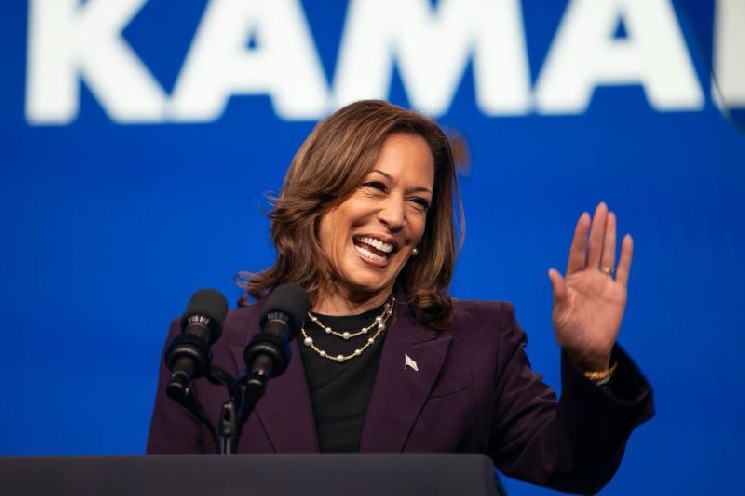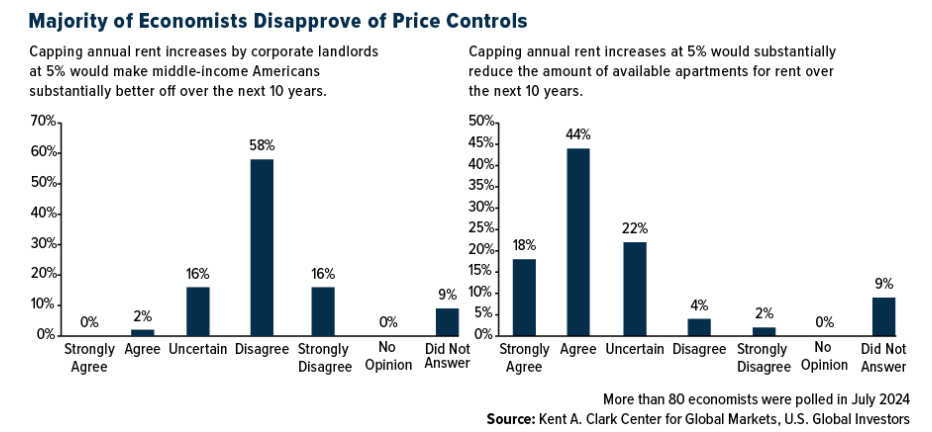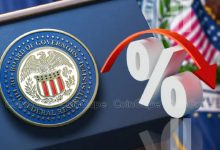U.S. economist warns Kamala Harris’s plan could skyrocket inflation

After United States President Joe Biden withdrew from the race for his re-election, replaced by his Vice President Kamala Harris, her planned economic policies, deemed even more radical than the current President’s, have attracted scrutiny and criticism, including from a popular economist.
Specifically, Peter Schiff has criticized Harris’s proposed economic plan as increasing inflation, arguing that inflation is not the solution but rather the opposite, as he explained in an X post published on August 30.
Indeed, as Schiff pointed out:
“Kamala Harris’s economic plan can be summarized in one word: inflation. That’s the only ‘solution’ she offers for every problem she promises to solve. But inflation isn’t the solution; it’s the problem. That means a Pres. Harris would make every problem she hopes to solve worse.”
What Harris’s economic plan includes
As a reminder, Harris has pledged to continue pushing for Biden’s tax reform program, which would raise the upper limit to capital gains taxes from 37% to 39.4% and, if she more closely implements the original scheme, to 44.6%, as Finbold reported on August 28.
She would also raise the corporate tax rate to 28%, which, like the program’s other aspects, could impact investors across markets due to its progressive nature, meaning the more one earns, the more they pay, like the unrealized gains tax that would apply to individuals with a net worth above $100 million.
As a result, taxing unrealized gains could drive capital out of the U.S. to more tax-friendly countries “at an unprecedented rate, leading to a loss of tax revenue and a weakening of our financial system,” according to the article by investment management firm U.S. Global Investors posted on August 26.
Inflation as a consequence
Furthermore, inflation could be one of the consequences of Harris’s future policies, as corporations traditionally offload their costs to customers, sometimes out of necessity and other times to protect their executives’ pay packages. If companies take this route, many Americans could see their expenses increase.
At the same time, Harris supports price controls, a type of government regulation that imposes limits on how much prices and wages can increase, which can assume the form of price ceilings, like rent controls, or price floors, like minimum wage laws, which U.S. Global Investors referred to as a “Band-Aid on a bullet wound.”
Moreover, citing a July survey, the investment manager stressed that 75% of economists “either disagreed or strongly disagreed with the statement that capping rent hikes at 5% annually would help Americans over the long run,” adding that “62% either agreed or strongly agreed that controlling price increases would lead to ‘substantial’ supply shortages.”

On the other hand, Harris’s opponent in the presidential race, former U.S. President Donald Trump, has offered an array of ideas to halt inflation, including stopping illegal immigration, which he believes would reduce demand for housing and bring down prices, stating in his June speech in Wisconsin:
“Less than four years ago, our borders were secure, inflation was nowhere. (…) I will end the Biden inflation nightmare and we will end it quickly. (…) I will also stop inflation by stopping the invasion, rapidly reducing housing costs.”
All things considered, economists’ concerns regarding Kamala Harris’s planned policies increasing inflation might, indeed, be justified, and only time will tell whether she adjusts her plans accordingly or keeps insisting on them.





 Bitcoin
Bitcoin  Ethereum
Ethereum  Tether
Tether  Dogecoin
Dogecoin  USDC
USDC  Cardano
Cardano  TRON
TRON  Chainlink
Chainlink  Stellar
Stellar  Hedera
Hedera  Bitcoin Cash
Bitcoin Cash  LEO Token
LEO Token  Litecoin
Litecoin  Cronos
Cronos  Ethereum Classic
Ethereum Classic  Monero
Monero  Dai
Dai  Algorand
Algorand  OKB
OKB  Cosmos Hub
Cosmos Hub  Stacks
Stacks  Theta Network
Theta Network  Gate
Gate  Maker
Maker  KuCoin
KuCoin  Tezos
Tezos  IOTA
IOTA  NEO
NEO  Polygon
Polygon  Zcash
Zcash  Synthetix Network
Synthetix Network  Tether Gold
Tether Gold  TrueUSD
TrueUSD  Dash
Dash  Holo
Holo  Zilliqa
Zilliqa  Enjin Coin
Enjin Coin  0x Protocol
0x Protocol  Siacoin
Siacoin  Qtum
Qtum  Basic Attention
Basic Attention  Ravencoin
Ravencoin  Bitcoin Gold
Bitcoin Gold  Decred
Decred  NEM
NEM  DigiByte
DigiByte  Ontology
Ontology  Nano
Nano  Status
Status  Waves
Waves  Huobi
Huobi  Lisk
Lisk  Hive
Hive  Numeraire
Numeraire  Steem
Steem  Pax Dollar
Pax Dollar  BUSD
BUSD  OMG Network
OMG Network  Ren
Ren  Bitcoin Diamond
Bitcoin Diamond  Bytom
Bytom